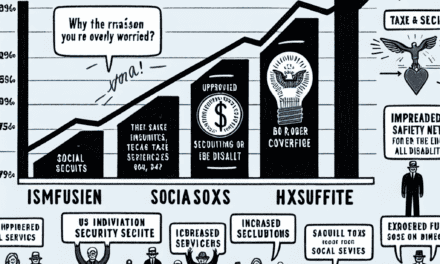“Icahn Enterprises: Navigating Turbulence Amid Dividend Doldrums”
Introduction
Icahn Enterprises, the diversified conglomerate led by renowned activist investor Carl Icahn, has experienced a significant decline in its share value following the announcement of a substantial dividend reduction. The company, known for its investments across various sectors including energy, automotive, and real estate, revealed a 50% cut in its dividend payout, marking the second such reduction in recent times. This move has raised concerns among investors about the financial health and future profitability of the enterprise, leading to a sharp sell-off in its stock. The decision to slash dividends is seen as a strategic measure to preserve cash amid challenging market conditions, but it has nonetheless sparked apprehension regarding the company’s long-term growth prospects and its ability to generate sustainable returns for shareholders.
Impact Of Dividend Cuts On Icahn Enterprises’ Stock Performance
Icahn Enterprises, a diversified conglomerate with interests spanning various sectors, has recently faced a significant setback as its shares plummeted following the announcement of another 50% dividend cut. This development marks a critical juncture for the company, which has long been associated with its founder, Carl Icahn, a prominent figure in the world of finance. The decision to slash dividends, a move that often signals financial distress or strategic realignment, has understandably raised concerns among investors and market analysts alike.
To understand the impact of this dividend cut on Icahn Enterprises’ stock performance, it is essential to consider the broader context in which the company operates. Dividends are a crucial component of shareholder returns, particularly for income-focused investors who rely on regular payouts as a source of income. Consequently, any reduction in dividends can lead to a reassessment of the stock’s value, as investors recalibrate their expectations regarding future cash flows. In the case of Icahn Enterprises, the decision to halve its dividend for the second time in recent memory has amplified these concerns, leading to a sharp decline in its stock price.
Moreover, the timing of this dividend cut is particularly noteworthy. It comes at a time when the company is grappling with various challenges, including fluctuating commodity prices, regulatory pressures, and evolving market dynamics. These factors have collectively contributed to a more volatile operating environment, necessitating a reevaluation of the company’s financial strategies. By reducing its dividend payout, Icahn Enterprises may be seeking to preserve cash and strengthen its balance sheet, thereby enhancing its ability to navigate these uncertainties. However, this rationale may not fully assuage investor apprehensions, as evidenced by the immediate negative reaction in the stock market.
In addition to the direct financial implications, the dividend cut also carries symbolic significance. For many investors, dividends represent a tangible expression of a company’s confidence in its future prospects. A reduction, therefore, can be perceived as a lack of confidence or an indication of underlying issues that may not be immediately apparent. This perception can exacerbate market volatility, as investors may choose to divest their holdings in search of more stable opportunities. In the case of Icahn Enterprises, the decision to cut dividends may have inadvertently fueled such sentiments, contributing to the observed decline in its stock price.
Furthermore, the impact of this dividend cut extends beyond immediate market reactions. It may also influence the company’s long-term strategic direction and investor relations. For instance, Icahn Enterprises may need to engage in more proactive communication with its shareholders to clarify the rationale behind its decision and outline its future plans. This could involve articulating a clear vision for growth and profitability, as well as demonstrating a commitment to enhancing shareholder value over the long term. By doing so, the company may be able to rebuild investor confidence and mitigate the adverse effects of the dividend cut on its stock performance.
In conclusion, the recent 50% dividend cut by Icahn Enterprises has had a pronounced impact on its stock performance, reflecting broader concerns about the company’s financial health and strategic direction. While the decision may be driven by a desire to strengthen the company’s financial position amid challenging market conditions, it has also underscored the importance of effective communication and investor relations in navigating such transitions. As Icahn Enterprises moves forward, its ability to address these challenges and restore investor confidence will be crucial in determining its future trajectory in the financial markets.
Analyzing The Financial Health Of Icahn Enterprises Amid Dividend Reductions
Icahn Enterprises, a diversified conglomerate with interests spanning various sectors, has recently faced significant financial turbulence, as evidenced by the sharp decline in its share price following another substantial dividend cut. The company’s decision to slash its dividend by 50% for the second time this year has sent ripples through the investment community, raising concerns about its financial health and long-term viability. This move, while perhaps necessary from a fiscal standpoint, has inevitably led to a loss of investor confidence, as dividends are often seen as a barometer of a company’s financial stability and profitability.
To understand the implications of this dividend reduction, it is essential to examine the underlying factors contributing to Icahn Enterprises’ current financial predicament. The conglomerate, led by the renowned activist investor Carl Icahn, has historically been known for its aggressive investment strategies and substantial dividend payouts. However, recent market conditions and internal challenges have necessitated a reevaluation of its financial strategies. The global economic landscape, characterized by rising interest rates and inflationary pressures, has undoubtedly impacted the company’s diverse portfolio, affecting its revenue streams and profit margins.
Moreover, Icahn Enterprises has been grappling with specific sectoral challenges that have further strained its financial resources. For instance, its energy and automotive segments have faced headwinds due to fluctuating commodity prices and supply chain disruptions. These challenges have not only affected the company’s operational efficiency but have also increased its operational costs, thereby squeezing its profit margins. Consequently, the need to preserve cash and maintain liquidity has become paramount, prompting the decision to reduce dividend payouts.
In addition to external market pressures, Icahn Enterprises has also been dealing with internal restructuring efforts aimed at streamlining operations and enhancing efficiency. While these initiatives are crucial for long-term sustainability, they often entail short-term financial sacrifices, including reduced cash flow available for dividends. The company’s management has emphasized that the dividend cut is a strategic move to strengthen its balance sheet and ensure financial flexibility in navigating the current economic environment.
Despite these challenges, it is important to note that Icahn Enterprises still possesses significant assets and investment opportunities that could potentially drive future growth. The company’s diversified portfolio, which includes holdings in sectors such as real estate, food packaging, and metals, provides a degree of resilience against sector-specific downturns. Furthermore, Carl Icahn’s track record as a shrewd investor suggests that the company may be well-positioned to capitalize on undervalued assets and market opportunities once economic conditions stabilize.
In conclusion, while the recent dividend cut has undoubtedly raised concerns about the financial health of Icahn Enterprises, it is crucial to view this development within the broader context of the company’s strategic objectives and market conditions. The decision to reduce dividends, though disappointing for income-focused investors, reflects a prudent approach to preserving capital and ensuring long-term sustainability. As the company continues to navigate the complexities of the current economic landscape, its ability to adapt and capitalize on emerging opportunities will be key to restoring investor confidence and achieving future growth. Investors and analysts alike will be closely monitoring Icahn Enterprises’ financial performance and strategic initiatives in the coming months to assess its progress in overcoming these challenges.
Investor Reactions To Icahn Enterprises’ Dividend Strategy
Icahn Enterprises, a diversified conglomerate with interests spanning various sectors, recently announced a significant reduction in its dividend payout, slashing it by another 50%. This decision marks the second such cut in a relatively short period, sending ripples through the investment community and prompting a sharp decline in the company’s share price. Investors, who have long relied on Icahn Enterprises for its robust dividend yields, are now grappling with the implications of this strategic shift.
The latest dividend cut has raised questions about the financial health and future direction of Icahn Enterprises. Historically, the company has been known for its generous dividend policy, which has attracted income-focused investors seeking stable returns. However, the recent adjustments suggest a reevaluation of priorities, possibly indicating a need to conserve cash or redirect resources towards other strategic initiatives. This move has inevitably led to a reassessment of the company’s value proposition, as investors weigh the potential benefits of reinvestment against the immediate loss of income.
In the wake of the announcement, investor sentiment has been notably affected. The sharp decline in share price reflects a broader uncertainty about the company’s ability to sustain its previous levels of profitability and growth. For many investors, dividends are not merely a source of income but also a signal of a company’s confidence in its financial stability. Consequently, the decision to cut dividends can be perceived as a red flag, prompting some to reconsider their positions in the company.
Moreover, the timing of the dividend cut has added to the unease. In an economic environment characterized by rising interest rates and inflationary pressures, investors are increasingly seeking safe havens that offer reliable returns. Icahn Enterprises’ decision to reduce its dividend payout at such a juncture may be seen as a misstep, potentially driving investors to explore alternative opportunities that promise more consistent income streams.
Despite the immediate negative reaction, some analysts argue that the dividend cut could be a prudent move in the long term. By retaining more capital within the company, Icahn Enterprises may be positioning itself to weather economic uncertainties more effectively. This strategy could enable the company to invest in growth opportunities, reduce debt, or enhance operational efficiencies, ultimately leading to stronger financial performance. However, this perspective requires investors to adopt a longer-term view, which may not align with the objectives of those seeking immediate returns.
As the dust settles, the focus will likely shift to how Icahn Enterprises communicates its future plans and reassures its investor base. Transparency and clarity regarding the rationale behind the dividend cut and the company’s strategic vision will be crucial in restoring confidence. Investors will be keen to understand how the retained earnings will be utilized and what measures are being implemented to drive growth and profitability.
In conclusion, the recent dividend cut by Icahn Enterprises has sparked significant investor reactions, underscoring the delicate balance between maintaining shareholder returns and pursuing strategic flexibility. While the immediate impact has been a decline in share price and investor confidence, the long-term implications will depend on the company’s ability to effectively leverage its retained capital. As investors navigate this period of uncertainty, the company’s communication and execution of its strategic initiatives will be pivotal in shaping future perceptions and investment decisions.
Long-Term Implications Of Repeated Dividend Cuts For Icahn Enterprises
Icahn Enterprises, a diversified conglomerate with interests spanning various sectors, has recently faced significant financial turbulence, marked by a dramatic plunge in its share price following yet another 50% cut in its dividend. This development has raised concerns among investors and analysts alike, as it signals potential long-term implications for the company’s financial health and investor confidence. The repeated dividend cuts, now a recurring theme for Icahn Enterprises, underscore the challenges the company faces in maintaining its financial stability and delivering consistent returns to its shareholders.
To understand the broader implications of these dividend cuts, it is essential to consider the role dividends play in investor decision-making. Dividends are often viewed as a tangible indicator of a company’s profitability and financial health. For many investors, particularly those seeking income, dividends represent a critical component of their investment strategy. Consequently, a reduction in dividends can lead to a reassessment of the company’s financial prospects and may prompt investors to reevaluate their positions. In the case of Icahn Enterprises, the repeated cuts could erode investor trust, leading to a potential sell-off of shares and further downward pressure on the stock price.
Moreover, the decision to cut dividends is often indicative of underlying financial challenges. Companies typically resort to such measures when they need to conserve cash, either due to declining revenues, increased operational costs, or the need to invest in other areas of the business. For Icahn Enterprises, the repeated dividend cuts may suggest that the company is grappling with one or more of these issues. This raises questions about the sustainability of its business model and its ability to generate sufficient cash flow to support both its operations and shareholder returns.
In addition to the immediate financial implications, the repeated dividend cuts could have broader strategic consequences for Icahn Enterprises. The company, known for its activist investment approach, relies heavily on its reputation and financial clout to influence the companies in which it invests. A weakened financial position could undermine its ability to pursue aggressive investment strategies and limit its influence in the market. This, in turn, could impact its long-term growth prospects and its ability to deliver value to shareholders.
Furthermore, the market’s reaction to the dividend cuts highlights the importance of effective communication and transparency in maintaining investor confidence. Icahn Enterprises must address the concerns of its shareholders by providing clear and comprehensive explanations for the dividend cuts and outlining a strategic plan to restore financial stability. By doing so, the company can mitigate some of the negative sentiment and reassure investors of its commitment to long-term value creation.
In conclusion, the repeated dividend cuts by Icahn Enterprises have significant long-term implications for the company and its stakeholders. While the immediate impact is evident in the sharp decline in share price, the broader consequences could affect the company’s financial health, strategic positioning, and investor relations. As Icahn Enterprises navigates these challenges, it must focus on restoring investor confidence through transparent communication and a clear strategic vision. Only by addressing these issues can the company hope to stabilize its financial position and secure its future growth prospects.
Comparing Icahn Enterprises’ Dividend Policy With Industry Peers
Icahn Enterprises, a diversified conglomerate with interests spanning various sectors, has recently made headlines following a significant decision to cut its dividend by another 50%. This move has sent ripples through the investment community, leading to a notable plunge in the company’s share price. To understand the implications of this decision, it is essential to compare Icahn Enterprises’ dividend policy with those of its industry peers, providing a broader perspective on how such strategies can impact investor sentiment and company valuation.
Dividend policies are a critical component of a company’s financial strategy, often reflecting its profitability, cash flow stability, and long-term growth prospects. For investors, dividends represent a tangible return on investment, and any changes to dividend payouts can significantly influence their perception of a company’s financial health. Icahn Enterprises’ recent decision to halve its dividend is not an isolated event; it follows a previous reduction earlier this year, signaling potential challenges in maintaining its historical payout levels.
In contrast, many of Icahn Enterprises’ industry peers have adopted more stable or even progressive dividend policies. For instance, companies within the same sector, such as Berkshire Hathaway and 3M, have maintained consistent dividend payouts, with some even increasing their dividends over time. This stability is often perceived as a sign of robust financial health and confidence in future earnings, which can enhance investor trust and support share prices.
The decision by Icahn Enterprises to cut its dividend can be attributed to several factors, including the need to preserve cash amid uncertain economic conditions and potential strategic shifts within the company. While such a move may be prudent from a financial management perspective, it inevitably raises questions about the company’s current performance and future outlook. Investors may interpret repeated dividend cuts as a signal of underlying issues, prompting a reevaluation of their investment in the company.
Moreover, when comparing Icahn Enterprises’ approach to that of its peers, it becomes evident that the company’s strategy may diverge from industry norms. While some companies prioritize returning capital to shareholders through dividends, others may focus on reinvesting earnings into growth opportunities or debt reduction. Icahn Enterprises’ decision to reduce its dividend could indicate a strategic pivot towards strengthening its balance sheet or funding new ventures, which, although potentially beneficial in the long term, may not immediately satisfy income-focused investors.
It is also worth noting that the broader economic environment plays a crucial role in shaping dividend policies. Rising interest rates, inflationary pressures, and global economic uncertainties can all influence a company’s ability to sustain dividend payouts. In this context, Icahn Enterprises’ decision may reflect a cautious approach to navigating these challenges, aligning its financial strategy with prevailing market conditions.
In conclusion, while Icahn Enterprises’ recent dividend cut has undoubtedly impacted its share price and investor sentiment, it is essential to consider the broader context of its industry peers and the economic landscape. By comparing its dividend policy with those of similar companies, investors can gain a more comprehensive understanding of the strategic considerations at play. Ultimately, while dividend cuts may pose short-term challenges, they can also serve as a catalyst for long-term growth and stability if aligned with a well-defined corporate strategy.
Strategies For Investors Facing Dividend Cuts In Icahn Enterprises
Investors in Icahn Enterprises recently faced a significant challenge as the company announced another 50% cut in its dividend, causing shares to plunge. This development has left many shareholders re-evaluating their investment strategies, as dividend cuts can have profound implications on both income and portfolio stability. Understanding how to navigate such situations is crucial for investors seeking to maintain their financial objectives.
Firstly, it is essential to assess the reasons behind the dividend cut. In the case of Icahn Enterprises, the decision may be attributed to a need to preserve cash flow, address debt obligations, or reinvest in the business. By understanding the underlying factors, investors can better gauge the company’s financial health and future prospects. This analysis can help determine whether the dividend cut is a temporary measure or indicative of deeper financial issues.
Moreover, investors should consider the broader market context. Economic downturns, industry-specific challenges, or regulatory changes can all impact a company’s ability to maintain dividend payouts. By evaluating these external factors, investors can gain a clearer picture of the risks and opportunities associated with their holdings. This broader perspective can inform decisions about whether to hold, sell, or even increase their investment in the company.
In addition to understanding the reasons behind the dividend cut, investors should also reassess their portfolio diversification. Relying heavily on a single company or sector for dividend income can expose investors to significant risk. Diversification across different industries and asset classes can help mitigate the impact of dividend cuts and provide a more stable income stream. By spreading investments across a range of companies with varying risk profiles, investors can reduce their vulnerability to any single company’s financial difficulties.
Furthermore, investors may want to explore alternative income-generating strategies. While dividends are a popular source of income, they are not the only option. Fixed-income securities, such as bonds or preferred stocks, can offer more predictable returns. Additionally, real estate investment trusts (REITs) and master limited partnerships (MLPs) often provide attractive yields. By incorporating these alternatives into their portfolios, investors can enhance their income potential while reducing reliance on dividends from individual stocks.
Another important consideration is the investor’s time horizon and risk tolerance. Younger investors with a longer time horizon may be more willing to weather short-term volatility in pursuit of long-term growth. In contrast, retirees or those nearing retirement may prioritize stability and income preservation. Understanding one’s financial goals and risk appetite can guide decisions about whether to hold onto shares of a company that has cut its dividend or to seek more stable alternatives.
Finally, maintaining a disciplined approach to investing is crucial. Emotional reactions to market fluctuations can lead to impulsive decisions that may not align with long-term financial goals. By adhering to a well-defined investment strategy and regularly reviewing portfolio performance, investors can make informed decisions that support their objectives.
In conclusion, while the recent dividend cut by Icahn Enterprises presents challenges for investors, it also offers an opportunity to reassess and refine investment strategies. By understanding the reasons behind the cut, diversifying portfolios, exploring alternative income sources, and aligning investments with personal goals and risk tolerance, investors can navigate the complexities of dividend cuts and continue to work towards their financial objectives.
The Role Of Activist Investors In Icahn Enterprises’ Recent Financial Decisions
Icahn Enterprises, a conglomerate with interests spanning various industries, has recently faced significant financial turbulence, culminating in a dramatic plunge in its share price following a substantial 50% cut in its dividend. This development has sparked widespread discussion about the role of activist investors in shaping the company’s recent financial decisions. Activist investors, known for their strategic interventions in corporate governance, have been both a driving force and a controversial element in the financial landscape of Icahn Enterprises.
To understand the impact of activist investors on Icahn Enterprises, it is essential to first consider the broader context of their involvement. Activist investors typically acquire significant stakes in companies with the intention of influencing management decisions, often advocating for changes they believe will enhance shareholder value. In the case of Icahn Enterprises, these investors have been instrumental in pushing for strategic shifts aimed at improving the company’s financial health. However, their aggressive tactics can sometimes lead to short-term volatility, as evidenced by the recent dividend cut and subsequent share price decline.
The decision to slash the dividend by half was not made in isolation but rather as part of a broader strategy to stabilize the company’s finances. Activist investors have long argued that Icahn Enterprises needed to reassess its capital allocation policies to ensure long-term sustainability. By reducing the dividend, the company aims to retain more capital for reinvestment in its core businesses, thereby strengthening its financial position. This move, while controversial, reflects a pragmatic approach to addressing the challenges posed by fluctuating market conditions and the need for operational resilience.
Moreover, the influence of activist investors extends beyond financial restructuring to encompass governance reforms. Icahn Enterprises has seen a shift in its board composition, with new members bringing fresh perspectives and expertise. This change is indicative of the broader trend among activist investors to advocate for enhanced corporate governance practices. By promoting transparency and accountability, these investors seek to align the interests of management with those of shareholders, ultimately driving value creation.
However, the involvement of activist investors is not without its critics. Some stakeholders argue that their focus on short-term gains can undermine the long-term strategic vision of a company. In the case of Icahn Enterprises, the dividend cut has raised concerns among income-focused investors who rely on consistent payouts. This tension highlights the delicate balance that companies must strike between meeting immediate financial objectives and preserving long-term growth potential.
In conclusion, the recent financial decisions at Icahn Enterprises, including the significant dividend cut, underscore the complex role of activist investors in shaping corporate strategy. While their influence can drive necessary changes and promote financial stability, it also introduces challenges that require careful navigation. As Icahn Enterprises continues to adapt to evolving market dynamics, the interplay between activist investors and corporate management will remain a critical factor in determining the company’s future trajectory. Ultimately, the ability to balance short-term financial imperatives with long-term strategic goals will be key to ensuring sustainable growth and shareholder value in the years to come.
Q&A
1. **What caused Icahn Enterprises shares to plunge?**
The shares plunged due to another 50% dividend cut announced by the company.
2. **How significant was the dividend cut for Icahn Enterprises?**
The dividend cut was significant as it marked the second 50% reduction, indicating potential financial challenges or strategic shifts.
3. **What impact did the dividend cut have on investor sentiment?**
The dividend cut likely led to negative investor sentiment, contributing to the sell-off and decline in share price.
4. **How did the market react to the dividend cut announcement?**
The market reacted negatively, with a sharp decline in the share price of Icahn Enterprises.
5. **What are the potential reasons for Icahn Enterprises to cut its dividend?**
Potential reasons could include conserving cash, addressing financial difficulties, or reallocating resources for other strategic initiatives.
6. **How might this dividend cut affect Icahn Enterprises’ future financial strategy?**
The dividend cut might lead to a reevaluation of financial strategies, focusing on strengthening the balance sheet or investing in growth opportunities.
7. **What are the broader implications of this dividend cut for the company’s stakeholders?**
The broader implications could include decreased investor confidence, potential reevaluation of investment positions, and scrutiny of the company’s financial health and management decisions.
Conclusion
Icahn Enterprises shares experienced a significant decline following the announcement of another 50% dividend cut, reflecting investor concerns over the company’s financial health and future profitability. The repeated reduction in dividends suggests potential cash flow issues or strategic shifts within the company, leading to diminished investor confidence and a subsequent sell-off in the market. This development underscores the importance of stable dividend policies in maintaining shareholder trust and highlights the potential volatility in companies undergoing financial restructuring or facing economic challenges.





